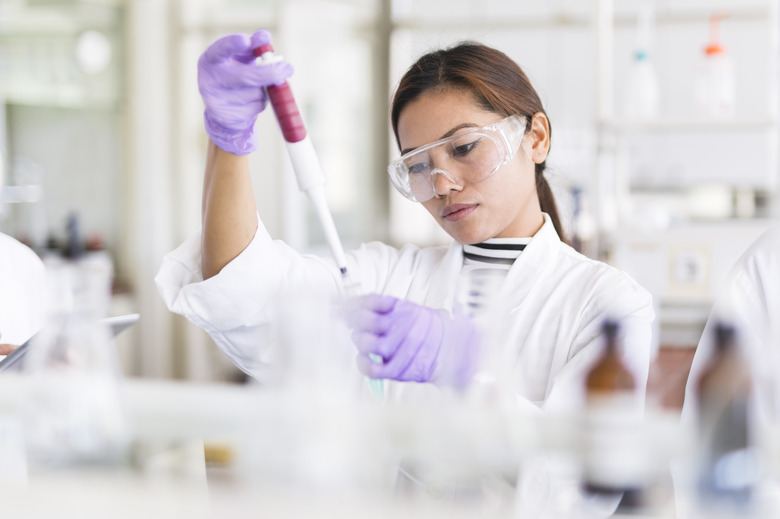Why Should We Make Multiple Trials Of An Experiment?
When you have an idea, and you want to know if it is true, a simple experiment can give you a quick result. But how do you know for sure that your idea will hold up based on one experiment? A multitude of tests can narrow the chance that your original idea simply doesn't hold water.
Scientific Method
Scientific Method
Asking questions about the natural world is a human trait that has propelled the species into space and the deepest depths of the ocean. The scientific method is used by biologists and other scientists to explore the world, and it begins with an observation. The original observation turns into a multitude of questions, which leads to a hypothesis. The hypothesis part is where the true test of the original observation yields facts and findings of the truth of the original thought. The experiments completed to prove the hypothesis can open new ideas, explore previously undiscovered expanses and lead the observer in new directions. The experiments are the heart of the hypothesis. The outcomes can either uphold or undo the hypothesis.
Experiments Matter
Experiments Matter
When the conditions of an experiment are under control the scientist is able to better understand the outcome of the test. It's not always possible to control all of the conditions of a test, particularly when first starting out in proving the hypothesis. If a controlled experiment is impractical or can't be done due to ethical reasons, a hypothesis may be tested by making predictions about patterns that should arise if in fact the hypothesis is true. The scientist collects data from as many patterns they can test or push to be tested within reason. The more experiments completed by the scientist the stronger the principle is for the hypothesis.
Variables and Variation
Variables and Variation
There are two types of variables when running tests: independent and dependent. An experiment with two groups, such as using water on one set of plants and nothing on a second set, has independent and dependent variables. The group that receives water, in this example, is the independent variable because it does not depend on happenstance. The scientist applies the water by choice. The dependent variable is the response that is measured in an experiment to show if the treatment had any affect. The lack of water on the set of plants shows whether the application by the scientist changes the outcome so therefore it depends on the independent variable.
This experiment needs to be done more than once due to the potential for variation, meaning some of the plants could have had disease or other outside variable that spoiled the experiment unbeknownst to the scientist conducting the experiment. The more samples presented at each test the better chance the scientist has of coming to a solid conclusion with little room for error.
Cite This Article
MLA
McGee, Kimberley. "Why Should We Make Multiple Trials Of An Experiment?" sciencing.com, https://www.sciencing.com/why-should-we-make-multiple-trials-of-an-experiment-12757977/. 25 June 2018.
APA
McGee, Kimberley. (2018, June 25). Why Should We Make Multiple Trials Of An Experiment?. sciencing.com. Retrieved from https://www.sciencing.com/why-should-we-make-multiple-trials-of-an-experiment-12757977/
Chicago
McGee, Kimberley. Why Should We Make Multiple Trials Of An Experiment? last modified March 24, 2022. https://www.sciencing.com/why-should-we-make-multiple-trials-of-an-experiment-12757977/
